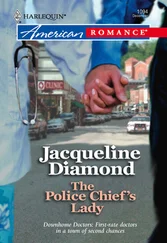“Yes,” Franca said. “Fortunately, there were no more miscarriages. But in a sense, I think she felt his loyalty had never truly been tested.”
An interesting insight—but not really relevant to today’s topic. “How did counseling help with your mom?”
“I had a frank talk with her about respecting boundaries,” Franca said. “I also suggested activities for her.”
“How’d she take it?”
“It upset her, and that upset me.” She sighed. “After a few rough weeks, she reluctantly joined a senior center. A couple of months later, she met a widower, and married him.”
“Is she happy?”
“Extremely.” Franca folded her hands on the table. “They moved to Reno, where his children live. She’s surrounded by grandkids, and except for the holidays, I’ve become barely more than a Facebook friend. A victim of my own success.”
That wasn’t the worst thing in the world. “If I were on Facebook, my mother would unfriend me,” Marshall muttered.
“Because of you and Nick being brothers? I don’t really understand how that happened.” Franca broke off as a server offered them each a chocolate chip cookie, courtesy of the café. “Thanks.” She set one on her napkin. Marshall accepted his and enjoyed the chocolate melting in his mouth while weighing how much to reveal.
He might as well spill it. The details would soon be all over the hospital anyway. “Nick’s parents allowed my parents to adopt me as a toddler. Upton Davis was much more successful financially, while my birth parents were nearly homeless. I gather they hadn’t planned on having two kids a year apart.”
Quentin Davis had stumbled from job to job, drinking heavily and refusing treatment for his bipolar disorder. Aunt Adina had held a series of low-paying positions, spending money whenever she had it and expecting it to fall out of the sky when she didn’t.
“How unusual that they chose to adopt the toddler rather than the baby,” Franca said.
“I presume Nick was still breastfeeding. Also, with a toddler, they had a better idea of how well the child was developing.”
“Aren’t you being a bit severe?” she asked.
“I know my parents.” Rather than elaborate, Marshall moved on. “My folks paid Adina and Quentin for an apartment and other living expenses, and insisted on secrecy in return. Until last week, I had no idea I was adopted.”
Franca rested her chin on her palm. “How’d you discover it?”
“Uncle Quentin had a crisis of conscience and decided to get it off his chest. He corralled Nick and me and dumped it on us.” Marshall pictured the graying, slightly stooped man as he’d sat at a conference table in the medical building just last Monday.
“Your mom must have been upset.”
“She implied I’m not her son anymore and refuses to have dinner with me or even talk to me.” When Marshall inhaled, his lungs hurt.
“It might be a knee-jerk reaction,” Franca said. “I can’t believe she means it.”
“She didn’t leave much room for doubt.”
“What about your birth mother? Do you have a relationship with her?”
“Aunt Adina died a couple of years ago. I never especially connected with her,” Marshall said. “But at thirty-five, I don’t suppose I need a mother.”
“Everyone needs a mother.” Reaching across the table, Franca cupped her hand over his fist. Instinctively, he relaxed beneath her touch. “Give your mom time. She’s hurting, and she lashed out at the person most closely associated with her secret—you.”
“If she refuses to see me, what am I supposed to do?” he asked bitterly.
“Write her a letter,” Franca advised. “Tell her you love her and that you’re here for her. She’s a mother, and once her initial shock eases, she’ll view things differently. Don’t let pride keep you apart.”
Pride. Marshall had plenty of that. “I suppose that’s good advice.”
Her smile froze on her face. Following her gaze, he spotted a little girl with black hair clinging to a woman’s hand as they entered.
Anguish transformed Franca’s expression, stabbing into Marshall as if the pain were his own. He’d never experienced another person’s emotions this keenly.
He didn’t have to ask what had hurt her. This must be her foster daughter.
* * *
EVERYTHING AROUND FRANCA VANISHED. All the light in the world haloed the little girl she loved.
Hard-won self-control barely held her in place. Then Jazz spotted her and the girl pelted across the restaurant screaming, “Mommy Franca!”
In an instant, the child was climbing onto her lap, hugging her. And Franca hugged back, tears flowing.
Bridget stalked toward them. Despite her jeans and cartoon-printed T-shirt, she looked older than her twenty-three years, thanks to her drug use. “What do you think you’re doing?”
“I’m sorry.” Franca struggled to catch her breath.
“Jazz, get down right now!” Bridget’s command whiplashed through the air.
“No!” The child burrowed into Franca.
Marshall sat quietly, observing. Franca felt both his sympathy and his reserve.
Around them, the café fell silent. Everyone was watching.
“Honey, you have to do what your mommy says.” Gently, Franca pried the little fingers from around her neck. “Don’t worry. I’m keeping your dolls safe and they’ll join you as soon as you have room.”
“I’m s’posed to stay with you. You promised!” The heartbreak in Jazz’s voice tore at Franca.
When she’d joyfully informed the child about the adoption, she’d never imagined that it might fall through. How could a child understand that grown-ups didn’t always have the power to keep their word?
“You live with your mother now.” Her chest tight, Franca eased Jazz to the floor. “How lucky you are. You have two mommies who love you.”
Bridget’s steely eyes lit with rage. “No, she doesn’t. She has one mother—me!”
Franca forced out the words, “That’s right.”
“Damn straight it is.” Until the man spoke, she hadn’t noticed him looming behind Bridget, his muscles bulging beneath a sleeveless T-shirt. Shaved head, coarse features and a scorpion tattoo on his neck. When had Bridget hooked up with this guy?
The notion of him having access to Jazz chilled Franca. But there were no bruises on the girl’s face or arms. She wasn’t sure whether to be grateful or dismayed that she had no grounds to call the police.
“Come on.” Bridget reached for her daughter’s hand.
The girl snatched it away. “No.”
“You heard your mother!” As if he’d been waiting for a chance to throw his weight around, the man grabbed the child’s arm. “Not another word out of you.” The man gave Jazz’s arm a yank.
“Axel,” Bridget warned.
Marshall uncoiled from his seat. He stood several inches taller, but lacked the other man’s heft. “You’re hurting the child.”
The man’s lip curled in a sneer. Then, as if becoming aware of the observers around them, he released Jazz. “Yeah, well, do what your mother tells you, kid.”
Jazz stood motionless, her tearstained cheeks a match for Franca’s. Clasping her daughter’s hand, Bridget led her along the aisle to the other side of the café.
Franca couldn’t remain there another instant. “I have to go.”
“Understood.” Marshall followed protectively as she headed for the door.
Franca supposed she ought to thank him for standing up to Axel, but she could hardly think for the noise in her head. Outside, she said a quick goodbye to him and rushed along the quay, pushing through the midday crowd.
But no sea breeze could dissipate her grief and guilt. She’d failed Jazz, regardless of where the fault lay. It burned like fire.
Читать дальше












